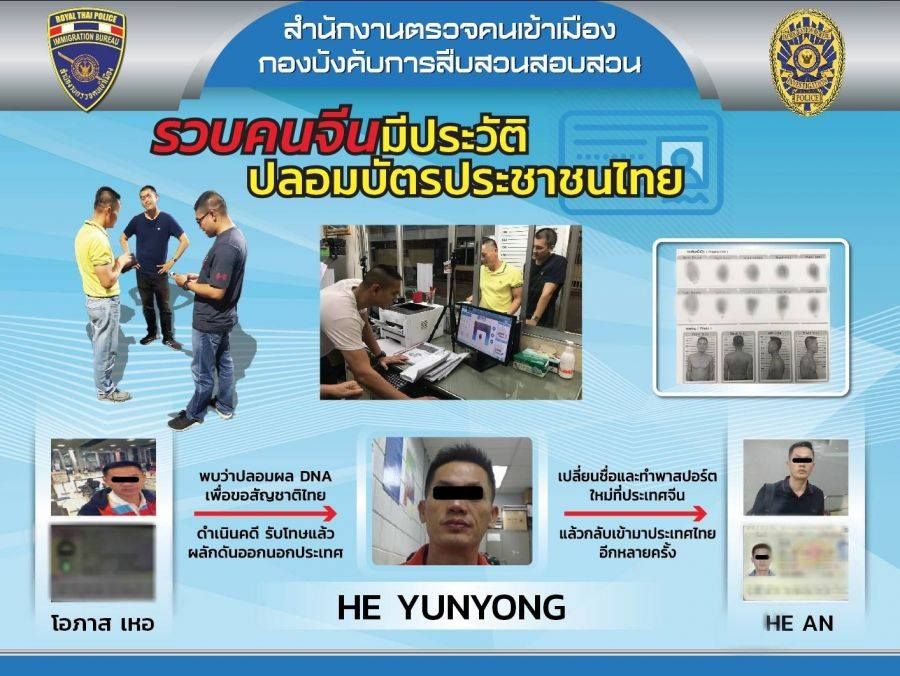A Chinese man who was wanted in his home country for illegally operating an online gambling den with a sum worth 400 million yuan (or Bt2 billion) has been arrested, Immigration Bureau chief Pol Lt-General Sompong Chingduang said on Friday.
The arrest was one of several recent cases involving foreigners, Sompong said.
In the first case, Chinese man Yunyong He had re-entered Thailand on April 27 under a new name of An He. As he tried to renew his visa, which expired on June 25, officials found that An He was the same man as the previously deported Yunyong He.
Yunyong had been prosecuted and jailed for 11 months for filing false information to officials and forging and using the forged documents to apply for a Thai national ID card before he was deported in 2016 and blacklisted from re-entering Thailand.
He re-entered Thailand on April 27 under a new name of An He.
In the second case, 32-year-old Chinese man Zhang Yifei was arrested in Phuket’s Muang district on June 11.
Zhang was wanted in his home country for illegally operating a Bt2 billion online gambling den along with 17 previously-arrested compatriots but he managed to flee to Thailand.
In the third case, following a tip-off that foreign migrants had been working as masseurs at a spa for men in Soi Suan Plu 6 in Bangkok’s Sathorn district, police rounded up 15 male workers. One was from Myanmar, two from Cambodian, eight from Vietnam, three from Laos and one stateless man. They now face charges of working without permission.
In the fourth case, 38-year-old David Sykora, from the Czech Republic, was arrested on June 24. He is a convicted thief who is wanted in his home country for a theft of goods worth 3,790 Czech koruna (Bt5,200).
In a fifth case, 39-year-old Aki Petri Johannes Vartianen, from Finland, was arrested on June 26, as per a request from the Finnish Police. He was sentenced to two-years and 12 days in prison for possessing and selling illicit drugs to customers while he was working as a body-building trainer there.
Sompong also said at the press conference that the biometric technology at international airports was not yet fully linked and immigration police still had to use other detection methods.
He expected the biometric system and all related records should be effectively applied at checkpoints by August.




